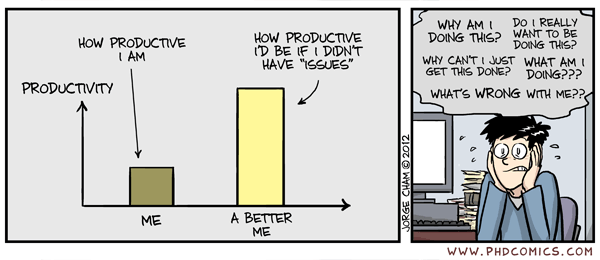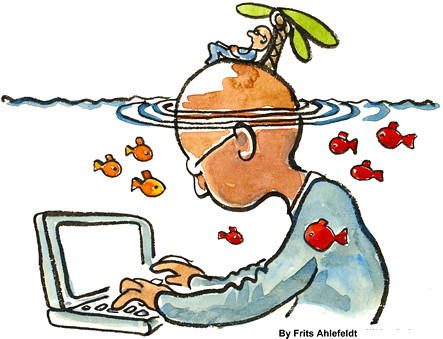
“Piled Higher and Deeper” by Jorge Cham, www.phdcomics.com
We spend an enormous amount of time trying to get the world to align with the vision we have for what will make us happy or successful. Whatever “it” is, figuring out how to deal with the noise in your head is probably faster and cheaper than changing the outside world. Not easier, though, merely important.
— Seth Godin makes his usual sense in his post It’s Not All in Your Head.
Sometimes the stuff in your head is exactly what Seth says — noise. Don’t psych yourself out with the should’ve-would’ve-could’ve. You’re already your better you to get out there and do.



